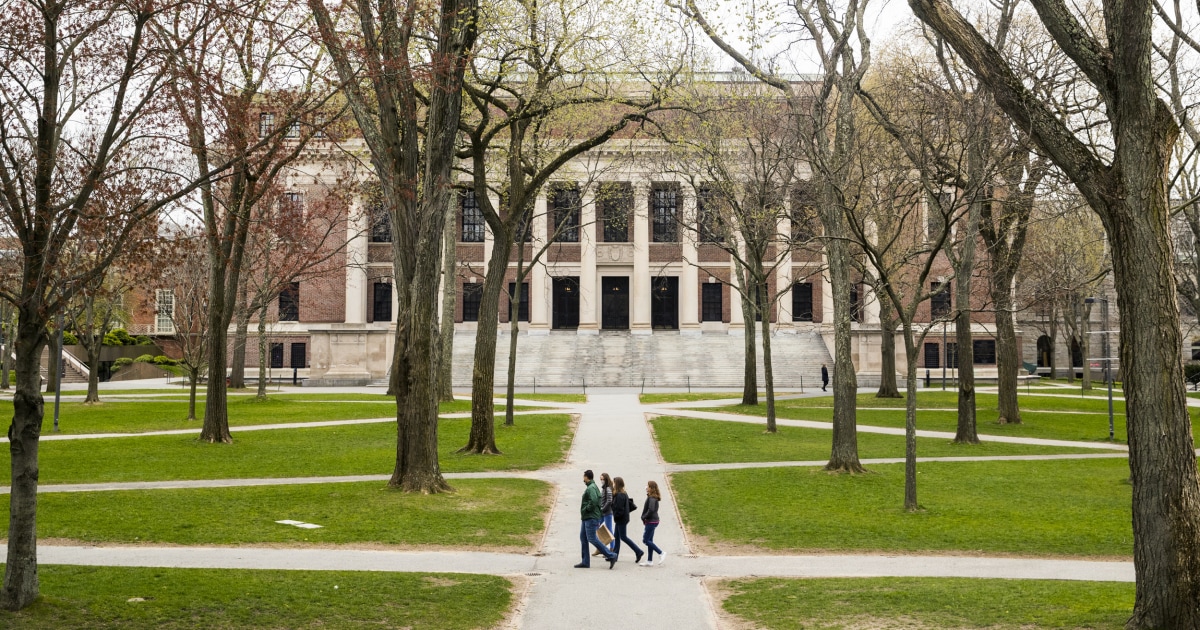
Numerous Harvard professors have retracted their signatures on a letter they initially signed expressing support for their colleague John Comaroff, a professor of anthropology and African and African American studies, after Harvard sanctioned him. The retractions came after the university said the full facts that led to Comaroff’s sanction were not public and after three graduate students filed a federal lawsuit alleging that he had engaged in “rampant” unwanted sexual contact and that the university failed to appropriately handle their sexual harassment complaints. Comaroff “categorically denies ever harassing or retaliating against any student,” according to a statement released by his attorneys.
Most of the findings in Harvard’s internal investigation haven’t been made public, and the lawsuit has just been filed, so we can’t know right now whether Comaroff is innocent or guilty of the allegations made against him. But the willingness of his colleagues to rally around him without knowing the full facts sends this disturbing message to victims, particularly women who have been sexually abused by powerful men: If they report what happened, the man’s supporters may circle the wagons to protect him. This can only serve to dissuade them from coming forward.
At the time they signed their letter, it was already known that Comaroff was being accused of sexual harassment and retaliation.
In reality, of course, our society should be sending the opposite signal. And while no one should blindly jump to the defense of someone who has been accused of sexual misconduct, it’s especially shocking that university faculty members — people whose job descriptions call for them to engage in rigorous research and mentor students — would do so.
Over 90 percent of campus sexual assault victims never report the crimes, according to the National Sexual Violence Resource Center. It’s clear that college campuses have a lot of work to do to convince victims that it’s safe to come forward and that their complaints will be investigated seriously. But this letter can only have had the opposite effect.
The swiftness with which Comaroff’s colleagues initially banded together to defend him might also send a disturbing signal to other powerful people: that if they commit sexual abuse, they can expect their friends and colleagues to jump to their defense. The development is especially distressing because it seems to walk back some of the progress made in the #MeToo movement. That movement showed that even ultra-powerful men like Harvey Weinstein and Matt Lauer (who worked as an NBC News anchor from 1997 to 2017) could be held accountable for sexual misconduct. But it’s a lot harder for that to happen when other influential people try to protect those who are accused of sexual abuse.
In their initial letter, Comaroff’s colleagues stated that they understood he had been sanctioned after giving a student “advice that openly traveling as a lesbian couple in a particular African country where homosexuality is illegal could lead to sexual violence.” Faculty members also said they were concerned that the university “did not accept the final results of its own Title IX investigation” but instead opened a second investigation. They asked for clarification of the university’s rules for faculty and stated that they “know John Comaroff to be an excellent colleague, advisor and committed university citizen who has for five decades trained and advised hundreds of Ph.D. students of diverse backgrounds, who have subsequently become leaders in universities across the world. We are dismayed by Harvard’s sanctions against him and concerned about its effects on our ability to advise our own students.”
But, at the time they signed their letter, it was already known that Comaroff was being accused of sexual harassment and retaliation, because The Harvard Crimson and The Chronicle of Higher Education reported on the allegations in 2020. Let’s remember that the people who signed this letter are venerated researchers. If they weren’t already aware of the allegations, they could have learned about them with a simple internet search. This is part of what made their initial response so troubling.
Claudine Gay, dean of Harvard’s Faculty of Arts and Sciences, who according to The Harvard Crimson was responsible for sanctioning Comaroff after internal investigations found him guilty of violating the school’s policies regarding sexual and professional conduct, responded to the open letter with one of her own. “If you have not reviewed the full findings of an investigation, it is hard to assess the proportionality of the response,” she wrote. “Be aware that if you do not have access to the full review, and instead are relying on public accounts relayed through the media or only what is shared by one party to a complaint, you are necessarily operating without a comprehensive understanding of the facts that have motivated the response.”
It’s astounding that some of the world’s most experienced researchers needed to be told this. As a letter signed by other faculty condemning the letter of support for Comaroff made clear, professors advocating for transparency in rules and investigations “must do so without presuming to know the full findings of confidential investigations or acting in ways that intimidate students and inhibit them from divulging experiences of harm.”
To their credit, 35 of the initial 38 signatories have retracted their signatures on the letter of support for Comaroff. Mariano Siskind, a professor of Romance languages and literatures, wrote that, after reading Gay’s letter: “I realized I had made a terrible mistake. I want to apologize to my students and I want them to know that I fully support all students facing the difficult decision to come forward with Title IX complaints.”
Coming forward to report sexual abuse is an act of enormous bravery that also forces victims to relive unthinkably upsetting events. When this happens, influential people should never rally to blindly defend the accused. It’s unfair to the alleged victims, and it has a much broader social effect of discouraging other people from reporting sexual abuse. It’s jaw-dropping that some of the country’s most highly regarded professors need to be taught this elementary lesson.
Source: | This article originally belongs to Nbcnews.com










